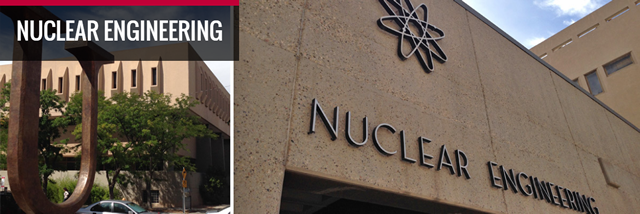
Nuclear Engineering ETDs
Publication Date
Winter 1-28-2019
Abstract
Renewed interest in molten salt reactor technology has brought to light the need for a better understanding of FLiBe corrosion. To this end a flowing FLiBe corrosion test loop was designed to test the flow effects of FLiBe corrosion. The loop consists of a pump, melt tank, and stainless-steel tubing assembly that heats the molten salt to high temperatures and circulates it over test specimens. The experiment has been constructed and has completed initial shakedown testing.
To support the flowing FLiBe experiment, a numerical corrosion model that couples FLiBe electrochemistry, solid metal diffusion, and mass transport was implemented. The model has been successfully validated, and initial results indicate that the addition of nickel protective layers to structural metal will greatly reduce FLiBe corrosion.
Keywords
FLiBe, corrosion, flow accelerated, numerical model, test loop, electrochemistry
Document Type
Thesis
Language
English
Degree Name
Nuclear Engineering
Level of Degree
Masters
Department Name
Nuclear Engineering
First Committee Member (Chair)
Youho Lee
Second Committee Member
Anil Prinja
Third Committee Member
Amir Ali
Recommended Citation
Weitzel, David B.. "An Experimental and Numerical Investigation of Flow Accelerated FLiBe Corrosion." (2019). https://digitalrepository.unm.edu/ne_etds/82
Included in
Nuclear Engineering Commons, Other Chemistry Commons, Structural Materials Commons, Transport Phenomena Commons
